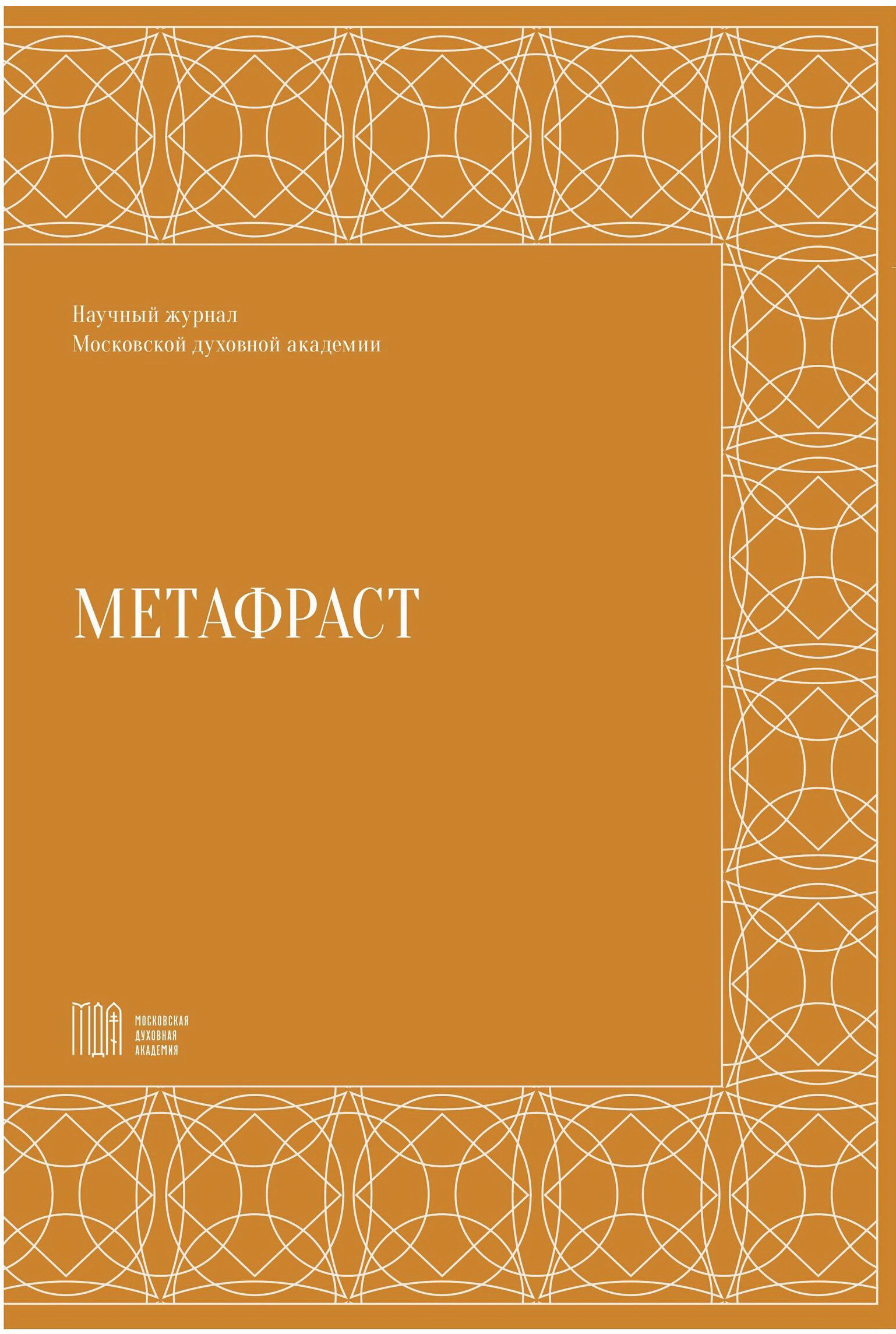Ineffable Words (2 Cor. 12, 3–4) in the Exegetical Polyphony of St. Symeon the New Theologian: An Attentive Reading of the Third ‘Ethical Discouse’
DOI:
https://doi.org/10.31802/METAFRAST.2023.9.1.005Keywords:
St. Symeon the New Theologian, Third ‘Ethical Discourse’, Ineffable Words, Close Reading, Patristic ExegesisAbstract
This article presents the findings of a meticulous reading of St. Symeon the New Theologian’s third Ethical Discourse, offering insights into the text’s precise techniques, dynamics, and profound significance. St. Symeon not only interprets the nature of the ineffable words (or verbs) heard by the Apostle Paul in the third heaven (2 Cor. 12:3-4) but also addresses the question of whether Paul’s experience is accessible to his contemporaries. He provides a unique patristic interpretation of the parable of the mustard seed, relating it to the spiritual life of humanity: the grain symbolizes the Holy Spirit, and the garden represents the heart of each individual. To explain how St. Paul could “see” ineffable words, St. Symeon posits the existence of a unified sense within the soul, which fragments into hearing, sight, taste, smell, and touch only when directed toward earthly objects. This idea finds direct textual parallels in the writings of St. Diadochos of Photiki, whose influence on St. Symeon had previously been dismissed by scholars. Based on this teaching, St. Symeon offers three interpretations of the ineffable words. First, they are invisible visions of the unknowable glory and divinity of the Son of God, revealed through the illumination of the Holy Spirit. Second, drawing on 1 Tim. 4:8, he identifies them as the blessings awaiting the faithful at the Second Coming. Third, he equates these blessings with the Holy Gifts that unite humanity with Christ. This analysis also highlights St. Symeon’s view that knowledge of God encompasses not only the contemplation of God but also the process of becoming like Him. His call to seek the kingdom of God, not as a physical place but as the reign of God within the believer, underscores the transformative nature of spiritual life. Through linguistic, semantic, and structural analysis, the article illuminates the distinctive features of St. Symeon’s interpretative method, positioning him not only as a mystic but also as an innovative exegete of Holy Scripture.
Downloads
References
Anastasius Sinaïta. Oratio altera in psalmum VI ex alio codice // PG. T. 89. Col. 1116-1144.
Athanasius Alexandrinus. Expositiones in Psalmos // PG. T. 27. Col. 60-545.
Basilius Caesariensis. De fide // PG. T. 31. Col. 464-472.
Basilius Caesariensis. De virginitate // PG. T. 30. Col. 669-809.
Basilius Caesariensis. Homiliae super Psalmos // PG. T. 29. Col. 209-494.
Joannes Climacus. Scala paradisi // PG. T. 88. Col. 632-1164.
Joannes Damascenus [spuria]. Sacra parallela // PG. T. 95. Col. 1040-1588.
Syméon le Nouveau Théologien. Traités théologiques et éthiques. T. 1 [Theol. 1-3 - Eth. 1-3] / éd. par J. Darrouzès. Paris: Cerf, 1966. (SC; vol. 122).
Максим Исповедник, прп. Кн. 1. Богословские и аскетические трактаты / вступит. ст., пер. и коммент. А. И. Сидорова. М.: Мартис, 1993.
Арранц М. Избранные сочинения по литургике. Т. 1. Таинства Византийского Евхология. М.: Институт философии, теологии и истории св. Фомы, 2003.
Василий (Кривошеин), архиеп. Преподобный Симеон Новый Богослов (949-1022). Париж: YMCA Press, 1980.
Иларион (Алфеев), митр. Преподобный Симеон Новый Богослов и православное Предание. М.: Издательский дом "Познание"; Изд. МП РПЦ, 2017.
Лурье В. М. Audiatur et altera pars: Стефан Никомидийский и его круг // Вестник РХГА. 2008. Т. 9. № 1. С. 281-285.
Петров В. В. Максим Исповедник: онтология и метод в византийской философии VII в. М.: ИФРАН, 2007. EDN: SUPFNN
Соловьёв Р. С. История изучения текстов прп. Симеона Нового Богослова в западной науке // Метафраст. 2019. Т. 1. № 1. С. 154-187.
Соловьёв Р. С. "Нравственные слова" прп. Симеона Нового Богослова: вопросы датировки, рукописной традиции, адресата и названия // Метафраст. 2019. № 2 (2). С. 40-61.
Соловьёв Р. С. Наблюдения за языком и стилем преподобного Симеона Нового Богослова на материале третьего "Нравственного слова" // Метафраст. 2020. № 1 (3). С. 139-155.
Щукин Т. А. Задача с неизвестными: исторический контекст "Богословских слов" Симеона Нового Богослова // ΕΙΝΑΙ. 2015. Т. 4. № 1/2. С. 446-458.
Δημητράκος Δ. Μέγα λεξικὸν ὅλης τῆς Ἑλληνικῆς γλώσσης. Τ. 11. Ἀθήναι: Βραβεῖον Ἀκαδημίας, 1953.
Dods M. The Gospel of St. John. New York: A. C. Armstrong And Son, 1891.
Thunberg L. Microcosm and Mediator. The Theological Anthropology of Maximus the Confessor. Lund: Open Court, 1995.
Downloads
Published
How to Cite
Issue
Section
License

This work is licensed under a Creative Commons Attribution-ShareAlike 4.0 International License.






